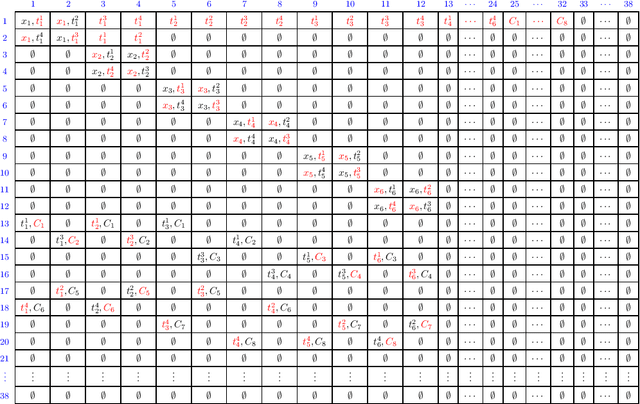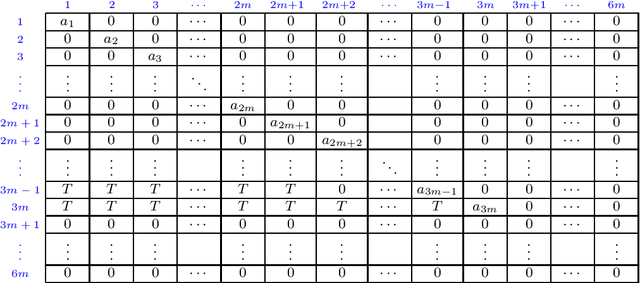Resource Allocation under the Latin Square Constraint
Paper and Code
Jan 11, 2025


A Latin square is an $n \times n$ matrix filled with $n$ distinct symbols, each of which appears exactly once in each row and exactly once in each column. We introduce a problem of allocating $n$ indivisible items among $n$ agents over $n$ rounds while satisfying the Latin square constraint. This constraint ensures that each agent receives no more than one item per round and receives each item at most once. Each agent has an additive valuation on the item--round pairs. Real-world applications like scheduling, resource management, and experimental design require the Latin square constraint to satisfy fairness or balancedness in allocation. Our goal is to find a partial or complete allocation that maximizes the sum of the agents' valuations (utilitarian social welfare) or the minimum of the agents' valuations (egalitarian social welfare). For the problem of maximizing utilitarian social welfare, we prove NP-hardness even when the valuations are binary additive. We then provide $(1-1/e)$ and $(1-1/e)/4$-approximation algorithms for partial and complete settings, respectively. Additionally, we present fixed-parameter tractable (FPT) algorithms with respect to the order of Latin square and the optimum value for both partial and complete settings. For the problem of maximizing egalitarian social welfare, we establish that deciding whether the optimum value is at most $1$ or at least $2$ is NP-hard for both the partial and complete settings, even when the valuations are binary. Furthermore, we demonstrate that checking the existence of a complete allocation that satisfies each of envy-free, proportional, equitable, envy-free up to any good, proportional up to any good, or equitable up to any good is NP-hard, even when the valuations are identical.
 Add to Chrome
Add to Chrome Add to Firefox
Add to Firefox Add to Edge
Add to Edge